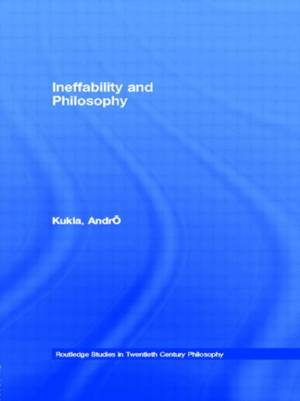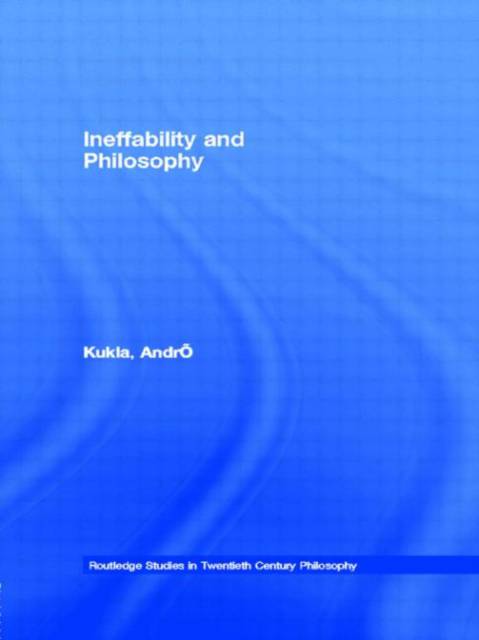
- Afhalen na 1 uur in een winkel met voorraad
- Gratis thuislevering in België vanaf € 30
- Ruim aanbod met 7 miljoen producten
- Afhalen na 1 uur in een winkel met voorraad
- Gratis thuislevering in België vanaf € 30
- Ruim aanbod met 7 miljoen producten
Omschrijving
Presenting a fascinating analysis of the idea of what can't be said, this book ascertains whether the notion of there being a truth, or a state of affairs, or knowledge that can't be expressed linguistically is a coherent notion. The author distinguishes different senses in which it might be said that something can't be said.
The first part looks at the question of whether ineffability is a coherent idea. Part two evaluates two families of arguments regarding whether ineffable states of affairs actually exist: the argument from mysticism and the argument from epistemic boundedness. Part three looks more closely at the relation between mystic and non-mystic stances. In the fourth and final part the author distinguishes five qualitatively different types of ineffability.
Ineffability and Philosophy is a significant contribution to this area of research and will be essential reading for philosophers and those researching and studying the philosophy of language.
Specificaties
Betrokkenen
- Auteur(s):
- Uitgeverij:
Inhoud
- Aantal bladzijden:
- 184
- Taal:
- Engels
- Reeks:
Eigenschappen
- Productcode (EAN):
- 9780415339704
- Verschijningsdatum:
- 18/11/2004
- Uitvoering:
- Hardcover
- Formaat:
- Genaaid
- Afmetingen:
- 161 mm x 222 mm
- Gewicht:
- 344 g

Alleen bij Standaard Boekhandel
Beoordelingen
We publiceren alleen reviews die voldoen aan de voorwaarden voor reviews. Bekijk onze voorwaarden voor reviews.











